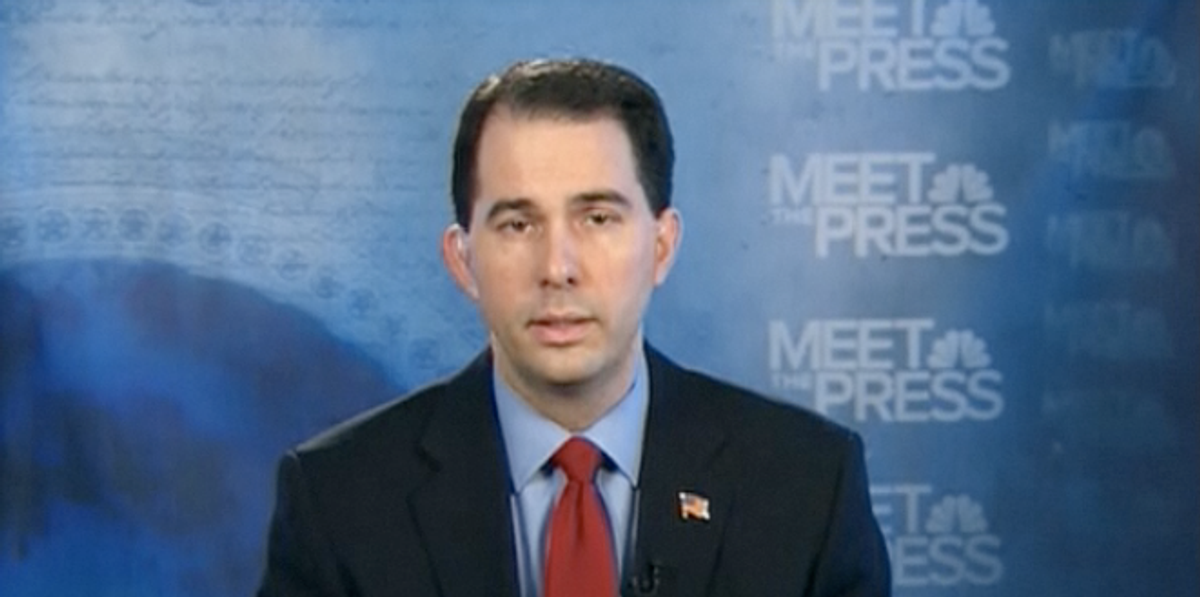Wisconsin Governor Scott Walker appeared on Meet the Press Sunday morning to discuss the controversial bill that would end collective bargaining for most public workers in his state. The legislation has catalyzed a national event, as 14 democratic senators fled the state to forestall a vote and thousands of state employees descended on the Capitol building in Madison for nearly two weeks of protests. In the interview, Walker adamantly defended the bill and appeared steadfast in his refusal to compromise. NBC's David Gregory pushed the governor to touch on a number of issues -- from his refusal to accept the concessions offered by state union officials to the prank caller the governor mistakenly believed to be David Koch earlier this week.
"Actions speak louder than words," according to Walker, who said that Wisconsin labor leaders can't guarantee the concessions they've promised. Walker also explained how statewide union officials spoke of meeting halfway with the governor, but local unions were unwilling to compromise.
Walker repeatedly invoked his time as a county executive to try to demonstrate his grasp of the issues at hand -- that compromise isn't an option because collective bargaining has to be done in every district:
As a local official, I can tell you personally, time and time again, because of collective bargaining when we have tough budgets in the past -- I tried to do modest changes to pension, I tried to do modest changes to healthcare... The unions said forget it, emboldened by by the fact that they had collective bargaining agreements. They said, 'go ahead, literally lay off four- or five-hundred people,' and to me, laying off people in this economy is completely unacceptable.
Walker echoed earlier statements warning that layoffs would be necessary unless the absent Democratic senators return to pass his bill.
He also justified exemptions in the bill for police officers and firefighters, saying it wasn't a "value judgment about employees," but that the service provided by those public employees was essential, and the state couldn't afford to have a "gap in service," should those officials walk off the job.
Visit msnbc.com for breaking news, world news, and news about the economy



Shares